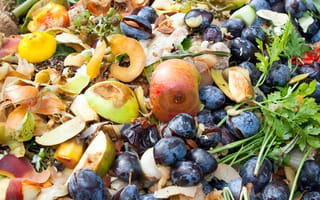
On Monday, Massachusetts startup Clean Crop Technologies announced it raised seed funding to reduce food waste by reducing mold growth in fresh produce. The Haydenville-based company raised $2.75 million, which it plans to spend on developing its High Voltage Atmospheric Cold Plasma (HVACP) technology, an ionized air generator that removes toxic natural gases that cause mold and bacteria growth. By running items through the HVACP generator, the company can extend the shelf life of perishable foods by up to seven days, according to CEO Dan White.
White considers the problem of food waste to be one that is both urgent and massive. The company, founded in 2019, claims that 500 million tons of supply chain food is wasted every year, resulting in nearly $250 billion in global revenue lost.
“We’re entering a period of environmental crisis,” White told Built In. “Things like the recent stresses on the agricultural supply chains have just kind of really reinforced the fact that there needs to be some fundamental changes to the way that we grow, preserve and manage foods.”
Clean Crop is hoping to be a part of those changes, as are a number of other startups also tackling food waste head on. White specifically named NanoGuard Technologies, a St. Louis-based electrochemical startup; Purfresh, a controlled atmospheric tech company based in San Francisco; and Apeel Sciences, a biotech startup that was recently named San Francisco’s latest unicorn, as competitors. Apeel, which counts Oprah Winfrey and Katy Perry among its investors, adds a natural layer of peel to produce like avocados and oranges to make it last longer.
Still, White said Clean Crop’s technology “would be complimentary [to theirs] as much as it’s competitive” since each startup is solving the issue of food waste in a different way.
The company will begin field tests in the United States later this year, and aims to be Food and Drug Administration-approved and deploy its tech commercially by the end of 2021. White is optimistic the space is ripe for growth.
“There’s a ton of opportunity in that space that’s currently just being left on the table, or in the garbage cans, so to speak, because we haven’t really advanced the fundamental technology we use to reduce supply chain waste for decades,” White said.
The seed funding brings investment in the six-person startup to at least $3 million. Prime Impact Fund led the round, with participation from Factor[e] Ventures, Innova Memphis, the Syndicate Fund and the Alchemy Fund.




